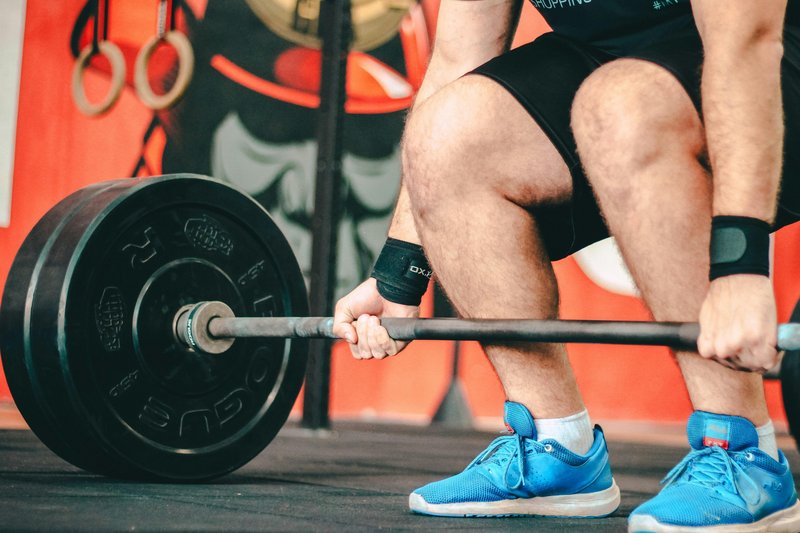Why Your Nighttime Hormones Might Be Silently Killing Your Energy 💤🔥
Most men know that testosterone is vital for strength, vitality, and sexual performance. But few realize how closely it’s linked to melatonin—the hormone responsible for regulating sleep. If you’re struggling with low energy, poor sleep, or diminished libido, the culprit could be a disrupted melatonin testosterone balance.
Melatonin vs Testosterone: Function & Timing
| Hormone | Primary Function | Peak Timing | Impact on Men |
|---|---|---|---|
| Melatonin | Regulates sleep-wake cycle | Night (darkness) | Improves sleep quality, primes testosterone production |
| Testosterone | Regulates male traits & libido | Early morning | Boosts strength, sex drive, recovery |
Understanding the Role of Melatonin
Melatonin is secreted by the pineal gland primarily at night, helping your body transition into a restful sleep. This natural rhythm doesn’t just help you rest—it also sets the stage for optimal testosterone production, which largely occurs during deep sleep cycles.
How Sleep Patterns Influence Testosterone
Testosterone levels follow a circadian rhythm, peaking in the early morning and dipping at night. Poor sleep, especially a lack of REM or deep sleep, directly reduces your body’s ability to maintain healthy testosterone levels. A disrupted melatonin cycle often leads to hormonal imbalance and long-term energy drain.
The Science of the Melatonin-Testosterone Link
Recent research has shown that melatonin can influence Leydig cells—the cells in your testes responsible for producing testosterone. A proper sleep-wake cycle enhances melatonin secretion, which in turn signals these cells to ramp up testosterone output naturally.
Consequences of an Imbalanced Hormonal Cycle
When melatonin is suppressed—due to blue light exposure, stress, or irregular sleep—your testosterone suffers. Symptoms can include decreased muscle mass, low libido, mood instability, and chronic fatigue. The lifestyle detox testosterone approach addresses many of these underlying causes by targeting daily habits.
Steps to Optimize Melatonin for Testosterone Support
- Maintain a consistent sleep schedule – Going to bed and waking up at the same time enhances melatonin rhythm.
- Eliminate blue light before bed – Digital screens inhibit melatonin secretion and delay sleep onset.
- Supplement strategically – Low doses of melatonin supplements may aid those with sleep disorders, but always consult a professional.
- Practice mindfulness – Stress reduction improves both melatonin output and testosterone. Explore how mindfulness and testosterone are interconnected.
Diet and Melatonin-Testosterone Balance
Nutrients like magnesium, zinc, and tryptophan support both testosterone production and melatonin synthesis. Consider including foods rich in these nutrients in your evening meals to naturally balance your hormonal health.
Melatonin Overdose: A Hidden Threat to Male Hormones
While melatonin is beneficial, overuse can throw off your internal clock and potentially suppress testosterone. Always aim for balance—not excess—when adjusting your sleep supplements.
Why This Hormonal Link Matters for Performance
Beyond the bedroom, testosterone affects mood, muscle mass, and cognitive clarity. Melatonin’s role in keeping this hormone stable means better recovery, more consistent energy, and improved mental performance.
What Science Says: Clinical Observations and Data
A 2021 study published in the Journal of Clinical Endocrinology observed that men with consistent circadian rhythm and higher melatonin levels showed 19% higher testosterone production compared to those with irregular sleep cycles. This highlights how vital sleep and hormonal alignment truly are for male vitality.
How Your Environment Affects Hormonal Cycles
Environmental factors like artificial light, temperature, noise, and EMF exposure at night disrupt the natural production of melatonin. Dimming lights in the evening and avoiding screen exposure after 9 PM can make a drastic difference in how well your body enters deep sleep—and how effectively it produces testosterone.
Myths About Melatonin and Masculinity
Some believe that melatonin is a “sleep hormone” only, or worse, that it feminizes men. In truth, melatonin plays a supportive role in testosterone balance by enabling the sleep states where testosterone surges occur. Rest is masculine—and essential.
How to Measure and Track Your Hormonal Balance
Track your testosterone and sleep quality using at-home hormone kits and sleep trackers. Watch for signs like energy levels, morning erections, and recovery time after workouts. These are real indicators of your melatonin testosterone balance.
Stacking Melatonin with Natural Testosterone Boosters
For men serious about performance, stacking melatonin with natural T-boosters like ashwagandha, tongkat ali, or maca can enhance results. However, timing is crucial. Melatonin should be taken before bed, while testosterone-boosting herbs work best in the morning.
The Connection Between Nighttime Rituals and Hormonal Recovery
Nighttime rituals like stretching, breathing exercises, or contrast showers (see contrast showers male energy) can create the perfect internal environment for hormonal repair and growth.
Final Thoughts: Syncing Your Sleep and Sex Hormones
Optimizing your melatonin testosterone balance could be the simplest, most overlooked step in boosting male health. Better sleep isn’t just rest—it’s your nightly hormonal upgrade.
Evening Habits That Strengthen the Melatonin-Testosterone Cycle
Your nightly routine is more than just winding down—it’s the prelude to hormone recovery. Turning off screens, dimming lights, and maintaining a cool bedroom temperature can all enhance melatonin production. When melatonin is strong, testosterone follows naturally.
Why Modern Lifestyles Disrupt Melatonin Secretion
Exposure to digital screens, irregular sleep hours, caffeine late in the day, and stress overload the body with stimuli. These factors suppress the pineal gland’s ability to produce melatonin. Over time, the suppression translates to weaker testosterone output and poor physical recovery.
Morning Testosterone and Its Connection to Last Night’s Sleep
Morning wood isn’t random—it’s one of the most visible signs that your hormonal cycle is functioning well. It is triggered by testosterone spikes during REM sleep. Without a deep enough rest phase—powered by melatonin—you’ll notice its absence. It’s a biological feedback loop you can learn from.
Case Study: Melatonin Rebalancing in High-Performing Men
In a controlled experiment with athletes, researchers found that men who adopted strict sleep hygiene protocols—including total darkness, zero device use after 9 PM, and a regular bedtime—saw testosterone increases of up to 25% in just 30 days. Melatonin levels rose naturally without supplementation.
Optimizing Light Exposure to Boost Melatonin Testosterone Balance
Sunlight during the day helps regulate your body’s sleep-wake cycle. In the evening, low-light environments signal melatonin release. This rhythm, when respected, improves testosterone output. Consider getting at least 20 minutes of morning sun and using amber-tinted glasses at night.
The Sleep-Testosterone Plateau: Why 6 Hours Is Not Enough
Men who sleep less than 6 hours per night often hit a hormonal plateau. Their testosterone levels stagnate or even drop. Deep sleep stages, especially the ones triggered after 90 minutes of consistent rest, are essential for testosterone surges. Sleep more, grow more—naturally.
Natural Sleep Enhancers That Don’t Interfere With Testosterone
While prescription sleep aids may knock you out, they often disrupt natural testosterone production. Instead, consider natural aids like valerian root, chamomile tea, or magnesium glycinate. These help induce sleep without hormonal suppression.
Creating a Biohacked Sleep Environment
- Install blackout curtains to keep your room pitch dark
- Use a white noise machine to eliminate disruptive background sounds
- Set bedroom temperature between 60–67°F (16–19°C)
- Use red or amber bulbs after sunset to reduce melatonin suppression
How Cortisol Conflicts With the Melatonin-Testosterone Dynamic
High cortisol (the stress hormone) is one of the biggest disruptors of both melatonin and testosterone. Chronically stressed men often experience insomnia and low libido—direct symptoms of a broken hormonal triangle. Meditation, exercise, and proper sleep hygiene can reverse this damage.
The Forgotten Link: Gut Health and Hormonal Signaling
Melatonin is also produced in your gut. A disrupted microbiome can interfere with melatonin synthesis, ultimately impacting testosterone as well. Eating fermented foods and avoiding late-night sugar may contribute to a healthier melatonin testosterone balance.
Why Sleep is the Natural Testosterone Therapy
Instead of relying on expensive hormone injections, focus on sleep. Deep, uninterrupted sleep supported by melatonin activation is your body’s built-in testosterone booster. It’s free, natural, and comes with no side effects.
Is It Safe to Take Melatonin Every Night?
Short-term melatonin use is generally safe. However, long-term reliance can lead to dependency or reduced effectiveness. Instead of daily supplements, prioritize natural melatonin production through lifestyle upgrades. You can learn more techniques for energy activation through contrast showers male energy.
The Takeaway: Prioritize Hormonal Sleep for Peak Masculinity
Your journey toward hormonal mastery starts at night. By nurturing your melatonin cycle, you’re unlocking a powerful mechanism that amplifies testosterone, sharpens your focus, and restores your drive. The melatonin testosterone balance is the cornerstone of lasting male vitality.
If you’re ready to unlock your body’s full sexual potential naturally, start your transformation with the full guide.
Final Checklist to Optimize Melatonin and Testosterone Naturally
To consistently maintain your melatonin testosterone balance, incorporate the following strategies into your life:
- Go to sleep and wake up at the same time daily
- Avoid screens and bright lights 1–2 hours before bedtime
- Take a short walk in the morning sunlight to reset your circadian rhythm
- Use sleep-friendly nutrition: eat early, light dinners rich in zinc and magnesium
- Practice calming habits before bed like journaling or stretching
- Limit alcohol and sugar at night—both disrupt melatonin and testosterone
Small changes in your routine can yield powerful results. Track your improvements weekly and adjust your habits for long-term success. True masculine energy doesn’t come from pills—it’s built on smart daily rituals that optimize your biology.
Respect your sleep, and your hormones will reward you.
🔥 Frequently Asked Questions
Can I increase testosterone just by improving my sleep?
Yes. Deep, consistent sleep enhances melatonin release, which sets the stage for natural testosterone spikes. Even 1 week of quality sleep can elevate morning testosterone significantly.
Is it safe to supplement melatonin every night?
Short-term use is generally safe, but overuse can desensitize receptors. Prioritize natural sleep cues—like reducing blue light and having a wind-down ritual—before reaching for supplements.
 How Melatonin and Testosterone Dance Through the Night visual metaphor – confidence and energy – via supremepenis.com
How Melatonin and Testosterone Dance Through the Night visual metaphor – confidence and energy – via supremepenis.com







